15 april 2024
Legislative changes in 2024 you should be aware of
Legislation is an ever-changing field, also in the Netherlands. As of the 1st of July 2023 and the 1st of January 2024 some changes will take into effect. These may or may not have an impact on you and your financial situation. To make sure you are up to date on all changes, we summed them up for you in the article below.
Changes as of July 1st of 2023
Minimum wage will be increased
As of July 1st of 2023 the minimum wage will be increased by a total of 3.13%. As a result of the percentual increase, the minimum wage will be € 1.995 gross per month as of this date. The minimum wage is linked to certain benefits. For example, the state pension (AOW), social assistance (bijstandsuitkering) and other social disabilities. The increase in the minimum wage therefore automatically means an increase in the linked benefits.
Changes as of January 1st of 2024
Minimum wage will be increased further
At the start of the new year, the minimum wage will be increased by 11.11%. As of January 1st of 2024 to be precise. As a result of this percentual increase, the minimum wage based on a full-time work week of 40 hours as of January 1st will be € 2.311,83 gross per month.
A higher net commute reimbursement
For work-related commuting, an employer may currently (2023) reimburse a net amount of € 0,21 per kilometer. From January 1st of 2024, the commute reimbursement by employers will be increased. The increase of € 0,02 brings the total net reimbursement for commute to € 0,23 per kilometer.

An adjustment in the tax benefit for expats
The 30% facility in the Netherlands is adjusted annually as of January 1st. This special tax benefit for expats has 2 thresholds. 1 for anyone above the age of 30 and 1 for anyone under the age of 30 and holding a master’s degree. The thresholds per January of 2024 are not yet published. This is usually published by the government around the end of December. However, what we do know and what has already been published is the following:
As of 2024, the 30% facility will get a cap to the maximum annual wages to which the facility is applied. The maximum annual wages is according to the Top Income Standards Act (Wet normering topinkomens) and is indexed annually. The indexed maximum amount for 2024 is yet to be finalized (somewhere by the end of 2023). In 2023, the Top Income Standards Act is determined at € 223.000. We think that the Top Income Standards Act amount for 2024 would be increased by € 7.000. This is based on the previous years’ increases (2022 = €216.000, 2021 + €209.000).
It basically means that the wages exceeding this maximum cap, will not be subjected to the 30% facility and that therefore the maximum amount which is paid out tax free (if we were to look at 2023) comes to:
€ 223.000 * 30% = € 66.900 annually.
*Transitional arrangement
For expats for whom the 30% facility is applied for over the last wage period of 2022, the capping measure does not apply from January 1st of 2024, but from January 1st of 2026. This exception does not apply to employees whose 30% facility started as of January of 2023.
Update since 2024: Phasing out to 30/20/10%
For applications submitted in 2024, the 5-year term is divided into three blocks of 20 months each. In the first block, the standard 30% benefit is allowed, with employees receiving a tax-free compensation of 30% of their salary. In the second block, this benefit reduces to 20%, and in the final block, it further decreases to just 10%. So, initially, eligible employees receive 30% of their salary tax-free for the first 20 months of their employment in the Netherlands, followed by 20% tax-free for the next 20 months, and finally, only 10% tax-free for the last 20 months.
The STAP budget will end
The subsidy which goes up to 1000 per year per person will come to an end and will not be renewed starting 2024. The government, however, is looking into/investing in another kind of subsidiary for residents who would like to study but cannot afford so from out of pocket. The government, however, has not disclosed any details about what this is, how it would look like and what the conditions are.

An Employer of Record is here to help you navigate these changes
In conclusion, staying informed about legislative changes is crucial, especially when it comes to your financial situation. By staying up to date and seeking assistance from an Employer of Record, you can navigate these changes with confidence and ensure compliance with the evolving legislation.
Yet staying up to date isn’t the only way an Employer of Record can be of service. If you were to need some assistance with relocating to the Netherlands, starting or setting up your business in the Netherlands or seeking a work visa sponsorship in the Netherlands, Employer of Record in the Netherlands is here to help you out. Not just for single professionals, but also for companies who are looking to set up shop in the Netherlands. Dutch Employer of Record is 100% compliant with Dutch law, and we’ll take care of any IP, tax, NDA requirements in the Netherlands that your organization may have.
Contact us


Set up a profile now
We can help you set up your team within 48 hours.
Get started


Still have questions?
Call Sarah. She has most of the answers.
Call Sarah


